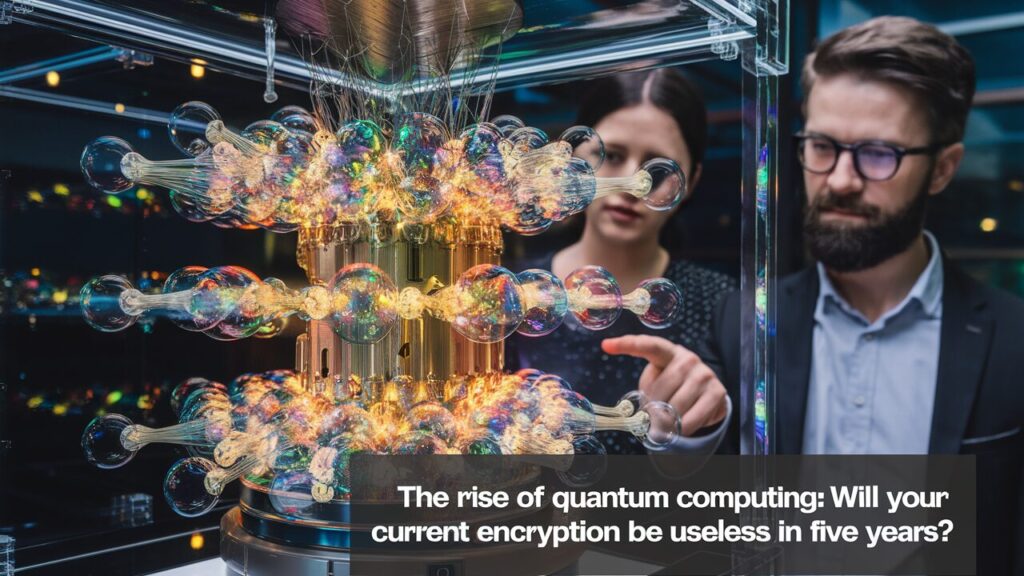Quantum computing poses a significant threat to current encryption methods, potentially rendering today’s security measures obsolete. With advancements in quantum computing and the development of quantum-resistant cryptographic algorithms, businesses need to start preparing for a future where traditional encryption can no longer guarantee data safety.
Quantum computing is evolving rapidly, raising concerns over its potential to break current cryptographic defenses that protect cloud-based information. The threat is not immediate, but the anticipation of quantum capabilities necessitates proactive measures to ensure data remains secure against future quantum attacks (World Economic Forum, 2022; SDxCentral, 2024; New Scientist, 2023).
The Quantum Threat
Quantum computers leverage quantum mechanics to solve problems exponentially faster than classical computers. This speed could allow them to decrypt encryption algorithms that currently secure cloud data, posing a threat to the privacy and security of stored information. While it’s still speculative when scalable quantum computers will become a reality, the consensus in the tech community underscores the urgency of preparing for their impact (SDxCentral, 2024).
Quantum-Resistant Cryptography
In response, there’s a concerted effort to develop and standardize quantum-resistant cryptographic algorithms. The National Institute of Standards and Technology (NIST) is leading this initiative, with the anticipated release of post-quantum cryptography (PQC) standards in early 2024. These new algorithms aim to secure data against quantum computing threats without requiring a significant overhaul of existing systems (SDxCentral, 2024; New Scientist, 2023).
Key Takeaways
- Quantum computing presents a clear and present danger to cloud encryption, potentially enabling unauthorized access to encrypted data.
- The development of quantum-resistant cryptographic algorithms is underway, with industry and governmental bodies preparing for the post-quantum era.
- Organizations must begin to incorporate crypto agility into their systems, ensuring they can swiftly adapt to new encryption standards and protect against quantum threats.
- Investment in quantum-safe key distribution and other quantum-safe technologies is essential to future-proof cloud infrastructure against quantum decryption capabilities.
For businesses, the transition to quantum-resistant encryption will require strategic planning and investment. By staying informed on the progress of PQC standards and beginning to integrate quantum-safe measures, organizations can safeguard their cloud data against the looming quantum threat.
Sources: World Economic Forum, SDxCentral, New Scientist



